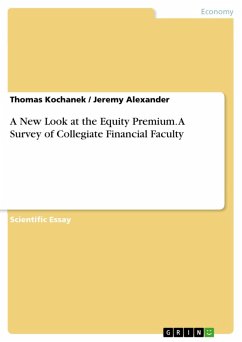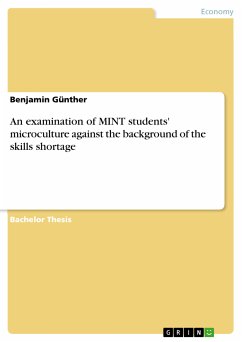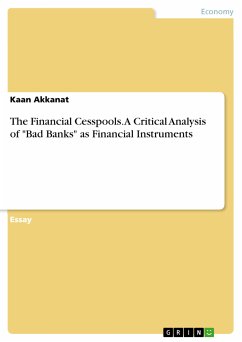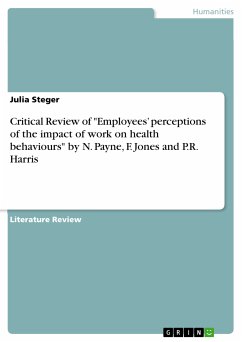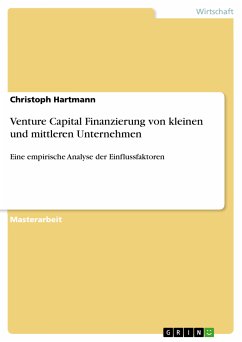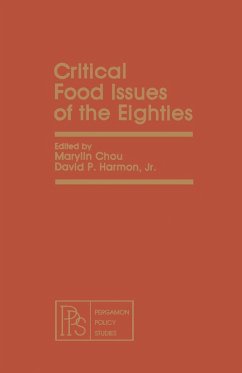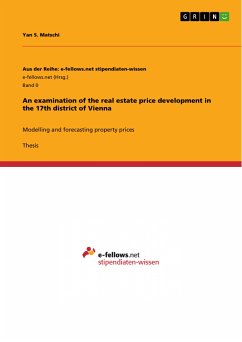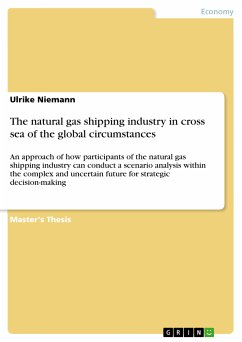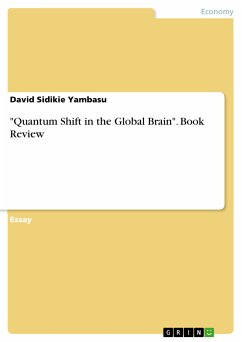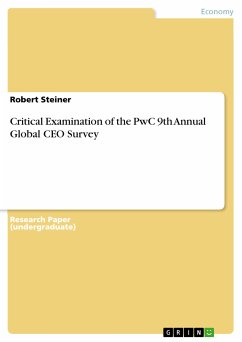
Critical Examination of the PwC 9th Annual Global CEO Survey (eBook, PDF)
Sofort per Download lieferbar
Statt: 18,95 €**
16,99 €
inkl. MwSt. und vom Verlag festgesetzt.
**Preis der gedruckten Ausgabe (Broschiertes Buch)
Alle Infos zum eBook verschenkenWeitere Ausgaben:

PAYBACK Punkte
0 °P sammeln!
Research Paper (undergraduate) from the year 2007 in the subject Business economics - Miscellaneous, grade: 2, Vienna University of Economics and Business (Department of Human Resource Management), course: International Human Resource Management, language: English, abstract: In early 2006, PricewaterhouseCoopers ('PwC') published the latest edition of its Annual Global CEO Survey ('the PwC survey'). This year, more than 1,400 CEOs were interviewed to find out about what is at the top of their mind, focussing on the current topics globalization and complexity with a special emphasis on emerging...
Research Paper (undergraduate) from the year 2007 in the subject Business economics - Miscellaneous, grade: 2, Vienna University of Economics and Business (Department of Human Resource Management), course: International Human Resource Management, language: English, abstract: In early 2006, PricewaterhouseCoopers ('PwC') published the latest edition of its Annual Global CEO Survey ('the PwC survey'). This year, more than 1,400 CEOs were interviewed to find out about what is at the top of their mind, focussing on the current topics globalization and complexity with a special emphasis on emerging markets like Brazil, Russia, India and China ('BRIC'). In addition to the data compiled by PwC, the PwC survey also presents in-depth interviews with five CEOs of multinational enterprises, offering insights into their personal way of dealing with globalization and managing complexity within their organizations. The authors have structured this paper into the following three parts: Part 1 critically examines the PwC survey in various aspects and presents three types of shortcomings that have been discovered (content-related, author-related, methodology-related). Part 2 deals with the PwC survey's implications for the role of corporate human resource management ('HRM') in multinational enterprises, examining changing forces in the global economy and linking them to the HRM function. Part 3 explores the impact of globalization and complexity on current international HRM literature and analyses its consistence with the findings presented in the PwC survey.
Dieser Download kann aus rechtlichen Gründen nur mit Rechnungsadresse in A, B, BG, CY, CZ, D, DK, EW, E, FIN, F, GR, HR, H, IRL, I, LT, L, LR, M, NL, PL, P, R, S, SLO, SK ausgeliefert werden.




